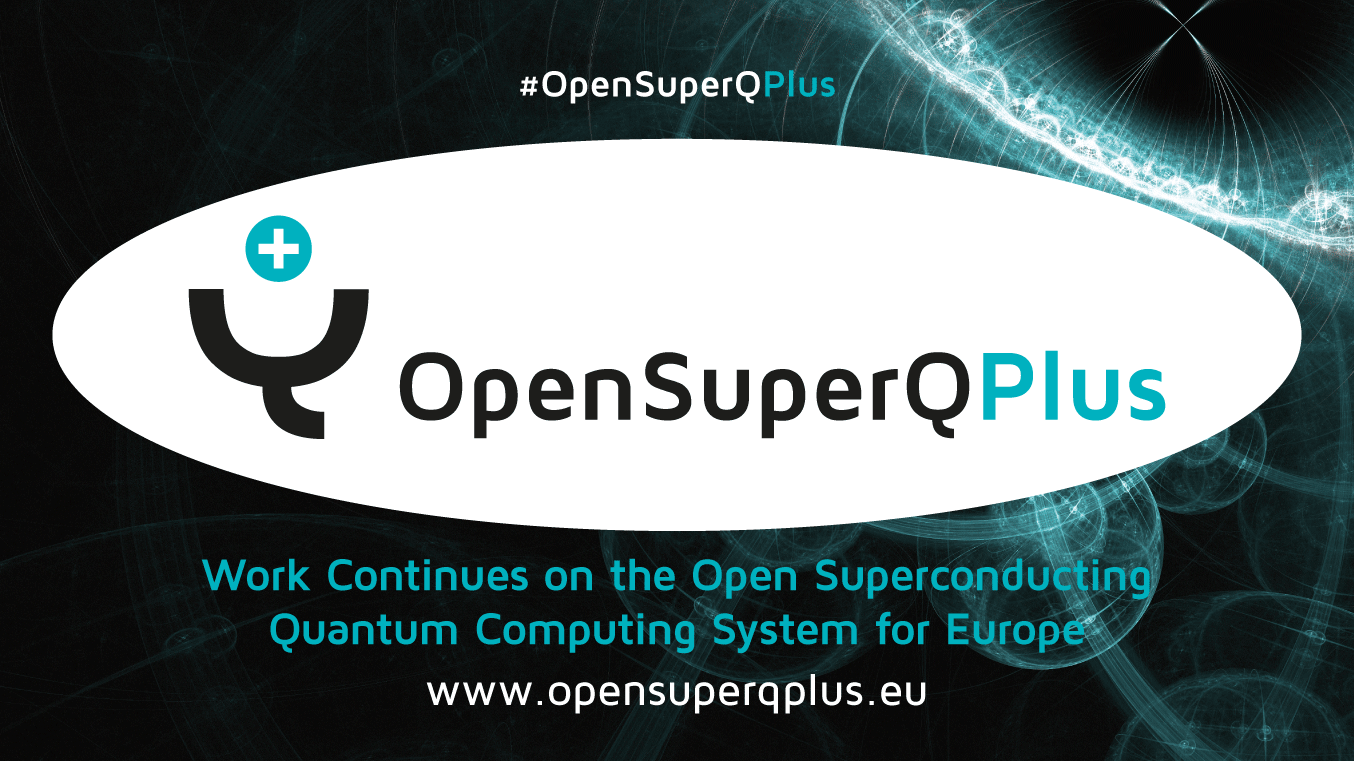The European quantum computer project OpenSuperQ is being extended. OpenSuperQPlus brings together 28 European research partners from 10 countries, including the Leibniz Supercomputing Centre. The aim is to develop a 1,000 qubit quantum computer.
The research project Open Superconducting Quantum Computers, or OpenSuperQPlus for short, is starting today in Europe. The European research project is part of the "Quantum Technology Flagship", the largest initiative of the European Union to date, which, with funds of around one billion euros since 2018, aims to advance quantum computing in Europe and bring a versatile quantum system made in Europe to market maturity.
OpenSuperQPlus continues OpenSuperQ and expands the network of research partnerships: In addition to the institutions of national quantum initiatives, OpenSuperQPlus collaborates with startups and companies that deal in particular with software for this future technology. A total of 28 partners from 10 countries are involved in the follow-up project, which is coordinated by Forschungszentrum Jülich. New to the research consortium are the two research institutes of the Bavarian Academy of Sciences and Humanities (BADW), the Leibniz Supercomputing Centre (LRZ) and the Walther-Meißner-Institut (WMI) in Garching. The LRZ contributes experience towards the integration of quantum processors into supercomputing, while the WMI brings insights into quantum physics. OpenSuperQPlus aims to build a 1,000-qubit quantum computing system by 2030.
First step: a robust 100-qubit quantum system
OpenSuperQPlus 100 is the first step: over the next 3.5 years, the research consortium will first complete a usable 100-qubit system for initial applications and also develop systems for evaluating hardware and software. With a view to the following development steps, the technologies and components that are useful for the planned 1,000 qubit quantum computer system are also being evaluated. OpenSuperQPlus is funded by the European Union with 20 million euros from the Horizon Europe program and a special Quantum grant.
“We are bringing together European specialists for all the components of such a quantum computing system under a unified framework – be they in the public or private sector. The technological challenge of beating errors in quantum computers and scaling them up needs all hands on deck from the outstanding quantum ecosystem in Europe“, says coordinator Frank Wilhelm-Mauch of Forschungszentrum Jülich.
Use experiences from integrated super and quantum computing
The LRZ is now part of OpenSuperQPlus, as part of its continuing work on integrating quantum computers into the supercomputing ecosystem. In particular, the LRZ will coordinate the work package covering the integration work in the project. "At the LRZ, we are moving forward coupling quantum processors with supercomputers and addressing integration research and development issues for the hardware and software. This work will provide both a power addition to supercomputing and further advances the future impact of quantum systems," says Laura Schulz, Head of Quantum Computing and Technologies (QCT) at the LRZ. "We look forward to working with the European research consortium OpenSuperQPlus and to the ideas and approaches for quantum-accelerated supercomputing, which holds promise for novel approaches for meaningful research results."
More information:
OpenSuperQPlus: https://opensuperqplus.eu
Quantum Technology Flagship: https://qt.eu/
